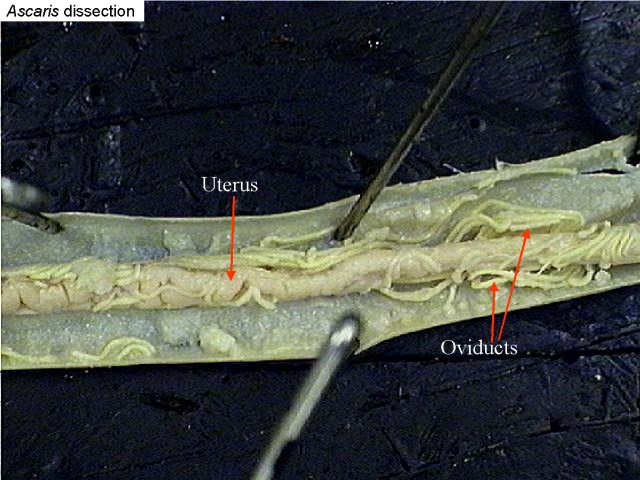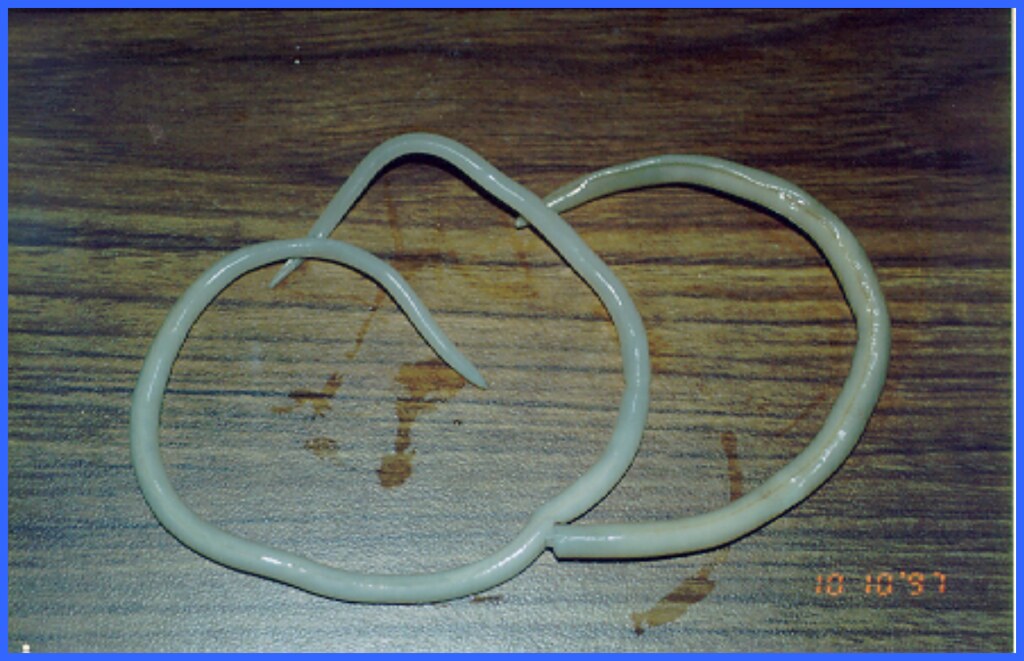Roundworm infection, also known as Ascariasis, is a common parasitic disease that affects millions of people worldwide. It is caused by a type of worm called Ascaris lumbricoides, which lives in the intestines of humans. This condition is particularly prevalent in areas with poor sanitation and limited access to clean water. Understanding the causes, symptoms, and treatment options for this infection is crucial for preventing its spread and ensuring proper care for those affected.

What Causes Roundworm Infection?
The primary cause of roundworm infection is the ingestion of eggs from the Ascaris lumbricoides parasite. These eggs are typically found in soil contaminated with human feces. The lifecycle of the parasite plays a significant role in how the infection spreads.
Lifecycle of the Parasite
- Egg Stage: The eggs of the parasite are released into the environment through the feces of an infected person. If sanitation is poor, these eggs can contaminate soil, water, or food.
- Ingestion: When a person consumes food or water contaminated with these eggs, they enter the digestive system.
- Larval Stage: Once inside the intestines, the eggs hatch into larvae. These larvae penetrate the intestinal wall and enter the bloodstream.
- Migration: The larvae travel through the bloodstream to the lungs, where they mature further. From the lungs, they move up the respiratory tract and are eventually swallowed back into the intestines.
- Adult Worms: In the intestines, the larvae grow into adult worms, which can live for up to two years if untreated. Female worms can produce thousands of eggs daily, which are then excreted in feces, continuing the cycle.
Risk Factors
- Lack of access to clean water and proper sanitation facilities.
- Poor hygiene practices, such as not washing hands after using the toilet or before handling food.
- Living in or traveling to regions where roundworm infections are endemic, such as parts of Africa, Asia, and Latin America.
- Engaging in agricultural activities that involve contact with contaminated soil.
Symptoms of Roundworm Infection
The symptoms of roundworm infection vary depending on the stage of the infection and the number of worms present in the body. In some cases, individuals may not experience any noticeable symptoms, especially during the early stages. However, as the infection progresses, certain signs may become apparent.
Early Symptoms
During the initial phase of the infection, when the larvae migrate through the body, individuals may experience:
- Coughing or wheezing, as the larvae pass through the lungs.
- Fever and fatigue, which are common responses to the presence of a foreign organism in the body.
- Shortness of breath, particularly if a large number of larvae are present in the respiratory system.
Advanced Symptoms
Once the larvae mature into adult worms in the intestines, more severe symptoms may develop, including:
- Abdominal pain and discomfort, often caused by the movement of worms in the intestines.
- Nausea and vomiting, sometimes accompanied by the presence of visible worms in vomit.
- Diarrhea or constipation, depending on the extent of the infestation.
- Loss of appetite and unintended weight loss due to malabsorption of nutrients.
- Bloating and a feeling of fullness, even after eating small amounts of food.
Complications
If left untreated, roundworm infection can lead to serious complications, such as:
- Bowel obstruction, which occurs when a large number of worms block the intestines.
- Pancreatitis, caused by worms migrating to the pancreatic duct.
- Malnutrition, particularly in children, due to impaired nutrient absorption.
- In rare cases, the worms may migrate to other organs, such as the liver or bile ducts, causing inflammation and damage.
Diagnosis of Roundworm Infection
Diagnosing roundworm infection typically involves a combination of clinical evaluation and laboratory tests. Healthcare providers rely on the patient’s medical history, symptoms, and specific diagnostic tools to confirm the presence of the parasite.
Medical History and Physical Examination
A healthcare provider will begin by asking about the patient’s symptoms, travel history, and living conditions. They may also perform a physical examination to check for signs of malnutrition, abdominal tenderness, or other abnormalities.
Laboratory Tests
Several laboratory tests can help confirm a diagnosis of roundworm infection:
- Stool Examination: A sample of the patient’s stool is examined under a microscope to detect the presence of worm eggs. This is the most common method of diagnosis.
- Blood Tests: Blood tests may reveal elevated levels of eosinophils, a type of white blood cell that increases in response to parasitic infections.
- Imaging Studies: In cases where complications such as bowel obstruction are suspected, imaging studies like X-rays or ultrasounds may be used to visualize the intestines.
Treatment Options for Roundworm Infection
Treatment for roundworm infection focuses on eliminating the parasites from the body and managing any associated symptoms. Antiparasitic medications are the mainstay of therapy, but additional measures may be necessary in severe cases.
Antiparasitic Medications
Medications specifically designed to target and kill parasitic worms are highly effective in treating roundworm infections. The most commonly prescribed drugs include:
- Albendazole: This medication works by disrupting the energy metabolism of the worms, leading to their death. It is usually taken as a single dose, although a second dose may be required in some cases.
- Mebendazole: Similar to albendazole, mebendazole interferes with the worms’ ability to absorb glucose, causing them to starve and die. It is also administered as a single dose or over several days.
- Pyrantel Pamoate: This drug paralyzes the worms, allowing them to be expelled from the body through bowel movements. It is often used as an alternative for individuals who cannot tolerate other medications.
Supportive Care
In addition to antiparasitic medications, supportive care may be necessary to address complications or alleviate symptoms:
- Hydration: Ensuring adequate fluid intake is essential, especially if the patient is experiencing diarrhea or vomiting.
- Nutritional Support: Individuals with malnutrition may require dietary supplements or specialized feeding plans to restore their health.
- Surgery: In rare cases where bowel obstruction or other severe complications occur, surgical intervention may be necessary to remove the worms or repair damaged tissues.
Preventive Measures
Preventing roundworm infection involves adopting good hygiene practices and improving sanitation. Some key strategies include:
- Washing hands thoroughly with soap and water, especially after using the toilet and before handling food.
- Ensuring access to clean drinking water and proper sewage disposal systems.
- Avoiding the use of untreated human feces as fertilizer in agriculture.
- Educating communities about the importance of hygiene and sanitation in preventing parasitic infections.
Living with Roundworm Infection
For individuals diagnosed with roundworm infection, adhering to the prescribed treatment plan and making lifestyle adjustments can significantly improve outcomes. Regular follow-up appointments with a healthcare provider are important to monitor progress and ensure the infection has been fully eradicated.
Long-Term Outlook
With prompt and appropriate treatment, most individuals recover completely from roundworm infection without long-term effects. However, reinfection is possible if exposure to contaminated environments continues. Therefore, ongoing efforts to maintain hygiene and improve living conditions are essential for sustained health.
Impact on Children
Children are particularly vulnerable to the effects of roundworm infection due to their developing immune systems and higher risk of exposure. Chronic infections can lead to stunted growth, cognitive impairments, and reduced school performance. Addressing these issues requires a combination of medical treatment, nutritional support, and educational initiatives aimed at breaking the cycle of infection.





